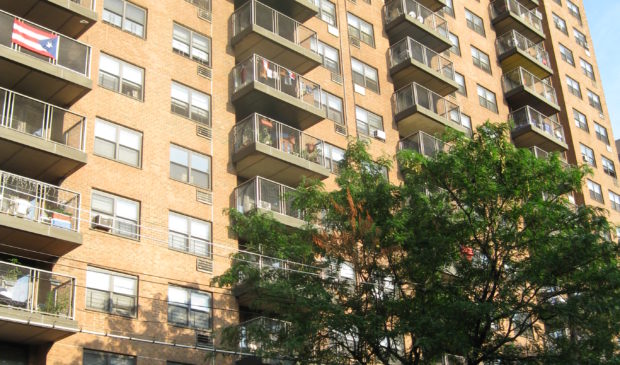How can Austin incentivize affordable housing?
Thursday, August 23, 2018 by
Jack Craver Members of City Council believe it’s time for a change to the city’s density bonus programs.
Currently, Austin has 13 “development incentive programs” that offer developers additional building entitlements if they provide a certain amount of housing that is affordable to lower-income people.
State law does not allow the city to mandate a certain number of affordable units in a development. It must structure the deal as an incentive. Hence, a program may offer a developer with plans to build a high-rise apartment complex the opportunity to build an additional floor of units beyond what would typically be allowed if the developer agrees that a certain number of the units will be reserved for those at a certain income level – typically 60 percent of the median family income for rental units and 80 percent MFI for owner-occupied units.
Some of the programs also allow developers who won’t or can’t provide on-site housing in their projects to pay a fee that the city will use to build affordable housing elsewhere.
The question that often comes up is whether the fee is large enough to truly create the housing that the city is supposed to get in exchange for the increased entitlements.
“If it’s cheaper to pay the fee-in-lieu, they’ll always pay the fee-in-lieu,” said Erica Leak, acting assistant director of the Neighborhood Housing and Community Development Department, in an interview with the Austin Monitor.
Some of the programs’ fees were set years ago, when the price of land was much cheaper. As a result, the city is able to provide far less housing with the fee revenue than was envisioned when the programs were set up. City staff estimates that the current programs will only generate 1,450 units affordable to those at 80 percent MFI over the next decade, compared to the 60,000 required to meet the growing city’s needs according to the Strategic Housing Blueprint adopted last year by Council.
Other programs’ fees are pegged to the consumer price index, which has not risen nearly as much in recent years as the price of real estate in Austin.
Setting the requirements is a delicate task. For the developer to participate in the program, the profit generated from the additional entitlement must be great enough to offset the money they’re losing by providing low-income housing or paying a fee-in-lieu.
At Tuesday’s Council work session, Council Member Leslie Pool pointed to a 2015 resolution approved by Council that directed staff to “recalibrate” the density bonus fees and unit requirements.
Leak said that staff had been waiting to make changes to the bonuses based on the new zoning entitlements in CodeNEXT, the proposed overhaul of the Land Development Code that Council voted earlier this month to abandon after nearly six years of preparation and debate.
“Now that CodeNEXT is not moving forward, we absolutely believe it’s a good idea to move forward to recalibrate the fees that are already in place and that we know need to be updated,” said Leak.
On Thursday Council will consider a resolution instructing city staff to evaluate the effectiveness of existing density bonus programs in generating affordable units and propose changes to requirements, either in terms of fees or actual units.
The resolution also directs staff to explore implementing bonus programs in the three dozen activity centers identified in the Imagine Austin Comprehensive Plan. City planners view those areas, which are generally located on major transportation corridors, as the ideal places to encourage dense, walkable neighborhoods that feature a blend of residential, commercial and retail uses.
Photo by Bigtimepeace – Own work, Public Domain.
The Austin Monitor’s work is made possible by donations from the community. Though our reporting covers donors from time to time, we are careful to keep business and editorial efforts separate while maintaining transparency. A complete list of donors is available here, and our code of ethics is explained here.
You're a community leader
And we’re honored you look to us for serious, in-depth news. You know a strong community needs local and dedicated watchdog reporting. We’re here for you and that won’t change. Now will you take the powerful next step and support our nonprofit news organization?











